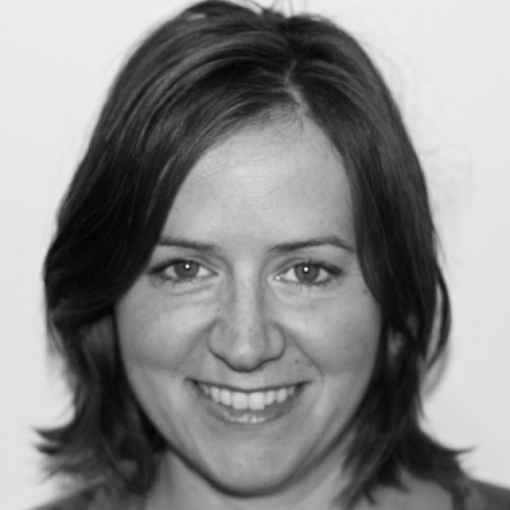PhD in Biology, awarded in 2011 by the University of Geneva
| Senior medical writer | |
|---|---|
| Meridian HealthComms | |
Year entered into a non-academic position: 2021
Left academia after: After 7 years of postdoctoral work
What’s your background?
I have a Master’s in Biochemistry and my PhD work/post-docs were in the field of human physiology, metabolism, and type 2 diabetes.
Why did you move away from academia?
I did not want to set up my own lab or pursue lab work anymore, and I was frustrated by the lack of progression in my career, the absence of feedback and the fact that my effort and work didn’t seem to be making an impact.
Is there anything you miss about academia?
No, except for teaching/giving tutorials to undergraduate students and the interaction with students.
How did you get this job? Did you face any challenges when considering a move away from academia or applying for the role?
I spoke with former post-docs/friends who are medical writers and mentioned I was looking for a job. I applied to different positions via LinkedIn. One of my friends put me in touch with a recruiter and after several interviews with different companies, I got a job as a medical writer.
What motivated you to/why did you choose the sector you transitioned into?
While in academia, I always liked reading papers, learning new things, analysing data, presenting at conferences and writing papers. It seemed to me that as a medical writer I would use all the skills I liked and not the ones I didn’t like anymore (spending time in the lab and generating data). And I was right about that.
Did you think you had the skills required for your current position before you started? Were you right?
Yes, but I was scared to fail the writing test which is a standard part of the interview process in this field.
I was right to think I had the skills and since then I have learned that failing one writing test does not mean you are going to fail all of them, it only means that’s not the test for you.
How did your PhD prepare you for your current job? For example, what were the transferable skills that you developed during your PhD that are most relevant to your current job?
As mentioned above, all my academic skills are useful: learning where to look for information on a new therapy area, how to do PubMed searches and screen articles, how to analyze data, perform statistics and generate graphs, how to write a paper, how to criticize a paper and answer to reviewers after the submission of a manuscript, how to present slides, create posters and abstracts, etc. The only difference is that we don’t spend time generating data ourselves, we are given data and then we analyse, interpret and communicate them as I used to do in academia. Instead of being an expert on one subject, you transfer your academic skills to different therapy areas and diseases.
Did you have any preconceptions about your sector that proved to be wrong?
No
Can you describe a typical week in your job?
There is not really a typical week, as the job is very varied and you don’t always know what you will work on. Projects move fast and sometimes there are urgent deadlines so you need to priories the work that is more urgent. It really depends on what clients want. At the moment I work on three different therapy areas, for one of them I mainly write manuscripts, for another I create slides and it is more educational material for healthcare professionals. For the last one, I did several meta-analyses which involved literature searches, data analyses and writing a manuscript.
What is the workplace culture like? Please include comments on work-life balance, flexibility, remote working?
I work fully remotely, so work-life balance is great. I work 9 am to 5.30 pm, never do extra hours, and if I do, I can compensate for my time. The work is flexible and everyone is friendly and trusting. A lot of people work part-time in the company.
Do people with a PhD frequently get hired in the company/sector?
The majority of medical writers have a PhD and many of them have post-doc experiences as well. Some companies don’t even hire you if you don’t have a PhD.
What are your favourite parts of your job?
The variety of projects and therapy areas, the fact that my work is reviewed by more senior people, and the fact that I keep learning new things.
What are your reflections on your career path?
I should have left academia before so I could be a scientific director by now.
Do you have any advice for current graduate students and postdocs considering a career outside of academia?
Don’t be afraid to try something different, there are lots of things you can do outside of academia, even if you might not know them yet. An academic background teaches you how to learn, then you can do anything if you’re willing to and curious about it. I wish I had left academia sooner so my career could have progressed earlier as there are many career progression possibilities in my current field. What was useful for me was to talk to people to understand what they really do beyond the job titles, attend career fair events, work with the Career Service to reflect on my CV and interviewing skills. I would tell my younger self:
“Don’t be afraid to fail, and learning what you don’t want and don’t like is as important as learning what you like. Trust the process, be patient, trust yourself, there are always possibilities even when we stop seeing them.”
What do you know now that you wish you’d known when exploring a transition?
I wish I had known about the possibilities of a career into the field of medical writing sooner and how valuable a PhD is for this profession.
Can you recommend any relevant resources, organisations or events that might help somebody new to the sector find out more about it?
I would say use Linkedin and approach people with the job title you’re interested in or the company you’re interested in, and ask them if you could have a chat or if the company is hiring. Companies in the field are constantly recruiting and they even give bonuses to people bringing new candidates in.





